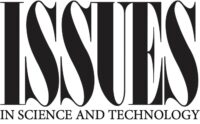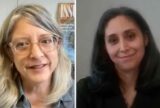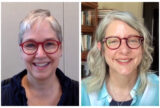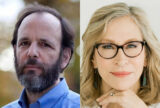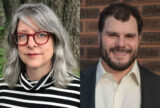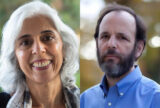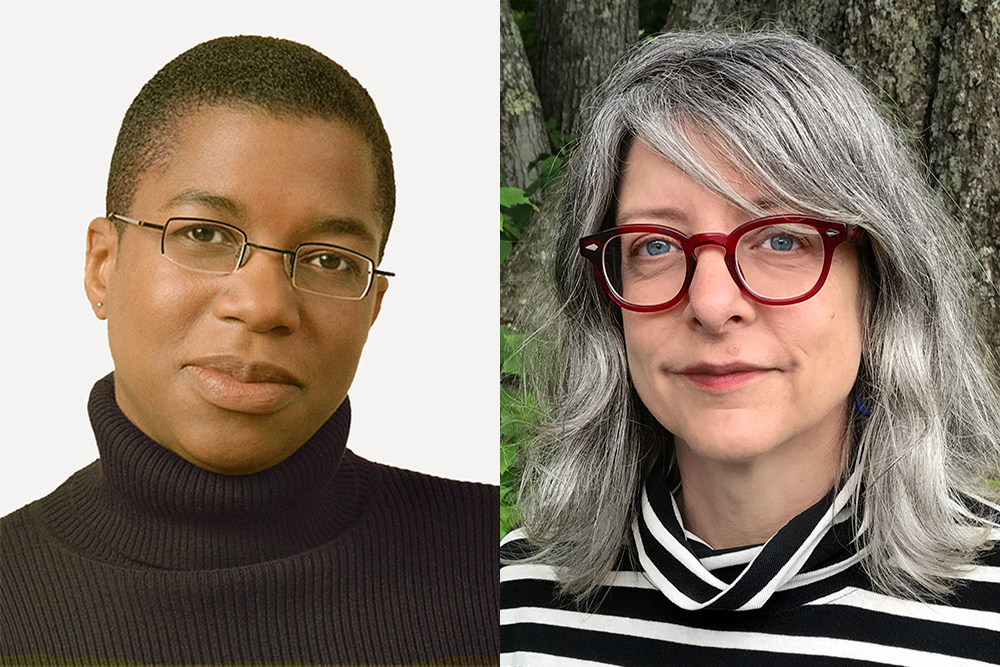
Every year scientists who have made great inventions receive Nobel Prizes recognizing their “benefit to humankind.” Yet for all the profound ways scientific progress has impacted our lives, many inventions have affected the world in ways that their creators did not imagine. Some innovations, created for peaceful purposes, have been used in war; others have had unintended environmental or health effects. More recently, the seemingly beneficial blue LED light has been found to interrupt sleep patterns and make roadways unsafe for senior drivers. What is it like to be an inventor? Are inventors responsible for the societal ramifications of their creations? And how could a more holistic approach to innovation lead future scientists to create change with fewer unintended consequences?
Ainissa Ramirez, a scientist who did research at Bell Labs before writing The Alchemy of Us: How Humans and Matter Transformed One Another, and Issues in Science and Technology senior editor Lisa Margonelli visit Zócalo to discuss why great breakthroughs demand greater understanding.
Zócalo is proud to partner with Issues in Science and Technology, a quarterly journal published by the National Academies of Sciences, Engineering, and Medicine and Arizona State University, to present discussions focused on the intersection of science, technology and public policy.
The Takeaway
How Can Inventors Respond to the Real-World Effects of Their Inventions?
A More Holistic Approach to the Field Can Make Technology Better for Society
What is it like to be an inventor? Are inventors responsible for the societal ramifications of their creations? And how could a more holistic approach to innovation lead future scientists …
Past Events in this Series
Meet the ‘Mediators’ Who Connect Scientists and the Public
Fossil Preparators Are a Panacea to a Closed-Off Field—And Their Work Offers a New Model for Research
How do colossal Tyrannosaurus rex and Triceratops fossils get from the ground to the natural history museum? And could that process—which involves not just paleontologists but a largely uncredited group …
Hello Blockchain, Bye-Bye Resumes
Could Digital Learning and Employment Records (LERs) Create a Fairer Hiring Process?
The resume has been around for hundreds of years, and is one of the most vital parts of the hiring process for workers, employers, and educators. But what resumes leave …
Scientists Don’t Have to Be Heroes
How NASA and ASU Astronomer Lindy Elkins-Tanton Is Dismantling the Personality-Driven Culture of the Research Laboratory
Two decades ago, NASA’s Psyche mission principal investigator and ASU Interplanetary Initiative vice president Lindy Elkins-Tanton was working toward her PhD at MIT. It was a place she loved, but …
‘Equating Abundance With Stability’ Is an Existential Threat to the U.S. Food System
Agricultural Scientist Molly Jahn Explains How Our Food Supply Became a National Security Problem
Agricultural scientist Molly Jahn started her career inventing new varieties of squashes and melons. But that work led her to wonder and worry about the security of our global food …
How Will Robot Trucks Change American Life?
For All the Promise of Automotive Trucking, the Future of Our Freight System Has a Human Problem
Robotic trucks are beginning to roll out, carrying cargo and promises of revolutionizing freight hauling, reducing traffic, and lowering pollution. But previous waves of automation have eliminated millions of jobs …
Can Innovation Really Solve Society’s Problems?
To Reckon With Today’s Greatest Challenges, We Need to Rethink Innovation Itself
Since World War II, the United States has famously funded research to advance all fields of science and innovation, fueling new disease-fighting drugs, increasing economic productivity, and sparking an information …




